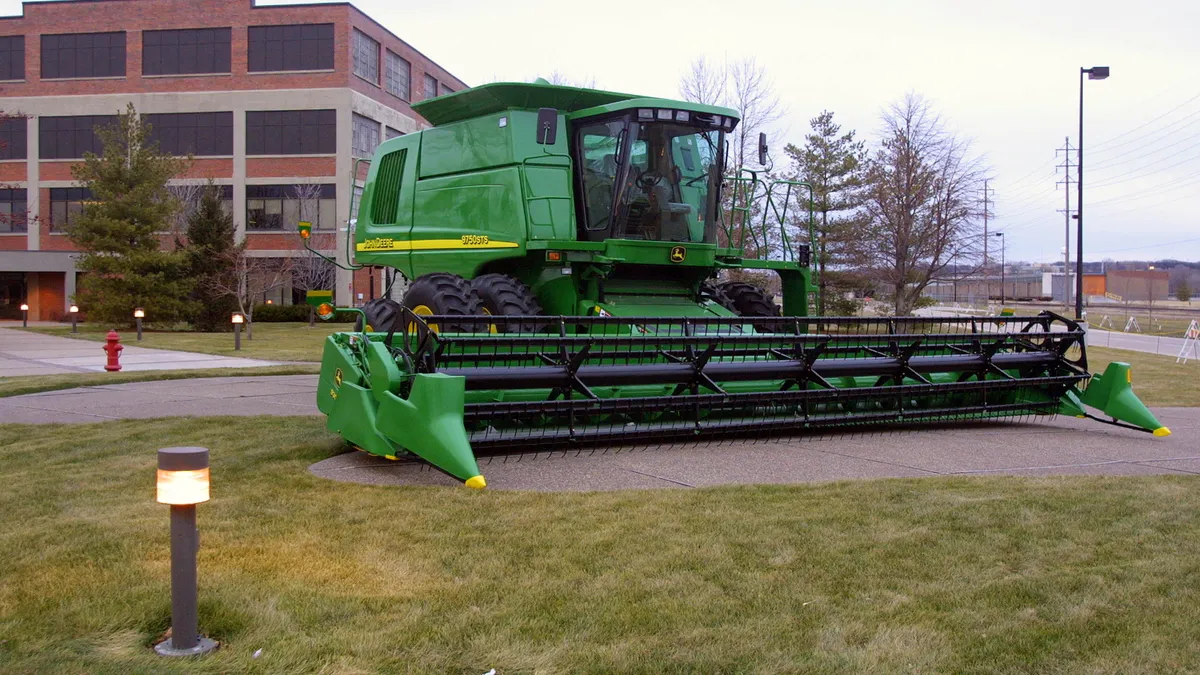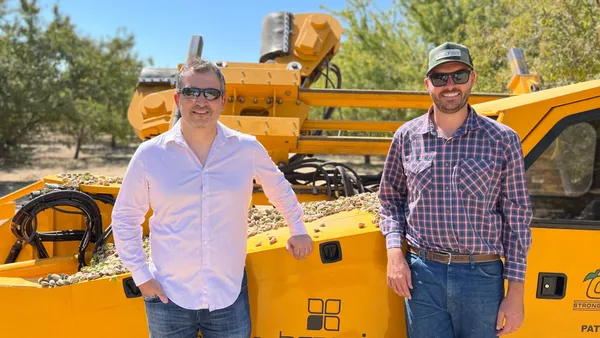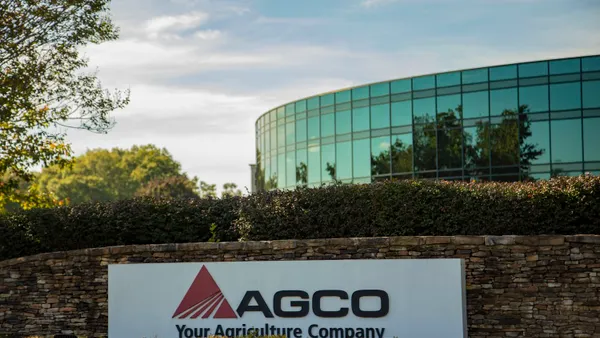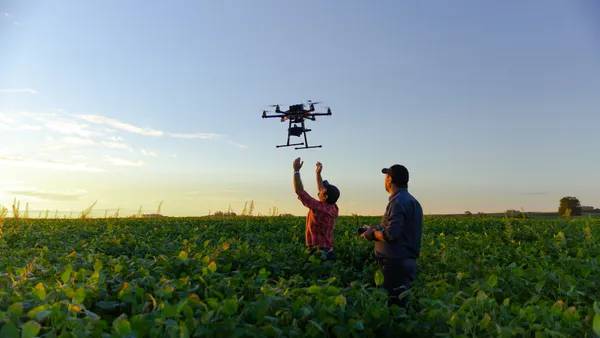Dive Brief:
-
Deere & Co. is making labor cuts at one of its largest factories in northwestern Illinois, the tractor manufacturer said Thursday.
-
Approximately 225 production workers at a Harvester Works facility in East Moline will be placed on indefinite leave effective Oct. 16, a company spokesperson wrote in an email. Affected employees were notified of the changes earlier this week.
-
The decision came despite a strong earnings quarter, buoyed by favorable market conditions and a recovering supply chain. Deere has no plans for additional layoffs this year.
Dive Insight:
Deere’s Harvester Works factory is the largest combine manufacturing facility in the world, spanning 90 acres under one roof, or roughly 4 million square feet.
“Although John Deere has hired hundreds of employees in the Quad Cities in recent years, the company has consistently stated that each Deere factory balances the size of its production workforce with the needs of the individual factory to optimize the workforce at each facility,” a spokesperson wrote in an email.
Deere declined to immediately respond when asked if the changes were cost-related.
Currently, there are 2,300 employees at the Harvester Works factory with about 1,975 of them working production and maintenance jobs, according to Deere.
Several companies across the agriculture industry are making structural changes to production as a way to weather rising costs and volatile price swings.
Smithfield Foods is shuttering 35 hog farm operations in Missouri next month, while Tyson Foods is set to close four plants across three states. Both meatpackers have experienced sequential profit losses and cut costs to improve their balance sheets this year.
As others experienced cost headwinds, Deere’s third quarter earnings surpassed analyst expectations, posting a net profit of $2.98 billion, up 58% from last year. However, company shares have been down, suggesting a lack of confidence among shareholders. Despite glowing guidance from Deere executives, some analysts are concerned about a peak in the agricultural cycle and slower sales ahead for tractors and combine harvesters, according to Investor’s Business Daily.











